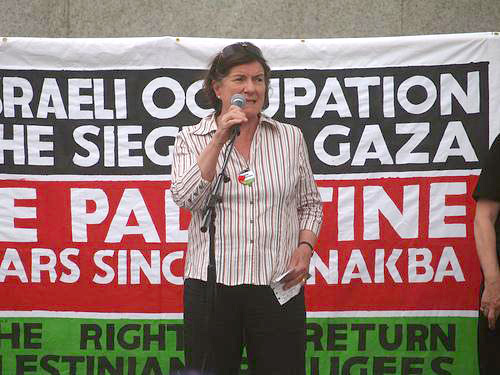Australia/Israel Review
Europa Europa: A Troubling Truth
Nov 30, 2016 | Douglas Davis

Douglas Davis
In an act of eye-watering chutzpah, a group of Muslim states sponsored a resolution that was designed, no less, than to overturn a couple of millennia of history. Naturally, the resolution passed. At a stroke, delegates to the Paris-based UNESCO voted to deny Jewish – and, by extension, Christian – ties to the Temple Mount and Western Wall in Jerusalem.
Israel and the United States voted against the resolution. But with the honourable exceptions of Britain, Germany, The Netherlands, Lithuania and Estonia, the detumescent states of Europe chose to cower behind the absurdity of abstentions, anxious to avoid conflict with their own Muslim communities or conflict with the Muslim world which they fear might exact an economic price. To Israeli Prime Minister Binyamin Netanyahu, the resolution was tantamount to “denying the connection between the Great Wall of China and China”.
That was not the first time that the UN had turned truth on its head. But even in a post-truth world it must rank among the most egregious examples, demonstrating the craven servility of the West and the mendacious hypocrisy of the resolution’s sponsors – Algeria, Egypt, Lebanon, Morocco, Oman, Qatar and Sudan.
With the wind under its wings, the Palestinian Authority is now planning to demand that UNESCO order Israel to surrender the Dead Sea Scrolls, which were discovered in the Judean Desert between 1947 and 1956. The scrolls, which date back to Second Temple times, were written mostly in Hebrew, with some in Aramaic and Greek.
Meanwhile, the Israel-hating brigade switched its focus to London, where it launched a year-long campaign, which, according to the Qudsnet News Agency, is designed to “make the international community, especially Britain, confront their historical responsibilities, call on them to atone for this major crime, and raise the issue of the historical injustice inflicted on the Palestinian people.”
The “major crime” was no less than the 99-year-old Balfour Declaration, delivered by the representative of the future Mandatory Palestine power, British Foreign Minister Arthur Balfour, to the head of the British Jewish community, Lord Walter Rothschild, on November 2, 1917.
Chief exhibit in the trial of “historical injustice” is the operative paragraph in the Declaration itself: “His Majesty’s government view with favour the establishment in Palestine of a national home for the Jewish people, and will use their best endeavours to facilitate the achievement of this object, it being clearly understood that nothing shall be done which may prejudice the civil and religious rights of existing non-Jewish communities in Palestine, or the rights and political status enjoyed by Jews in any other country.”
Some might interpret the Balfour Declaration as the first formulation of the “two-state solution”. But not Saeb Erekat, the veteran Palestinian peace negotiator. He reached for his pen to emphasise what he regards as the “original sin” of Israel’s creation: The Balfour Declaration, he opined in the Washington Post, represents the “symbolic beginning of the denial of our rights.” He then proceeded to berate the international community for permitting the continued existence of the Jewish state.
So it is not, after all, the occupation and settlements that are the obstacles to peace. The Palestinians and their predecessors have opposed – and continue to oppose – the existence of the State of Israel as a Jewish state. That is at the root of the malaise in the “peace process”.
The Balfour Apology Campaign launched the first in a year-long series of global events at the House of Lords in London to decry the creation of Israel and to demand an “official apology from the British government for its past colonial crimes in Palestine.” At the gathering, organised by the Palestine Return Centre and hosted by veteran Israel-hater Baroness Jenny Tonge, Israelis were compared to ISIS terrorists, Jews were blamed for the Holocaust, and Zionists were accused of not only inspiring the Holocaust but of holding the British parliament in its thrall.
Baroness Tonge’s critique of Israel ranges across the spectrum, from accusations that Israeli aid teams use humanitarian catastrophes to harvest the organs of their victims to accusations that Israel foments Islamist extremism. She lauded the meeting for raising the issue of sanctions against Israel: “The BDS campaign to boycott Israeli goods and services, and divestment from Israel, is very, very important indeed.”
The truth is that after years of boycotts, divestment and sanctions, of threats, bluff and bluster at the UN forums, the Palestinians remain mired in their self-indulgent misery and their home-made poverty, which has been born out of a culture of grievance and entitlement. Israel, despite the BDS campaign and the spasmodic violence that is visited on its people, remains an open, democratic state that is growing progressively stronger – politically, economically, technologically and militarily. Moreover, it is making significant diplomatic inroads not only in Africa but across the Arab world.
In the 1992 film “A Few Good Men”, Lieutenant Kaffee (Tom Cruise) demands that Colonel Jessep (Jack Nicholson) tell the truth to a court martial. In the most memorable line from the film, the Jack Nicholson character barks back: “You can’t handle the truth.”
The same may be said of the Palestinians. And of their Western enthusiasts.
Tags: Anti-Zionism






